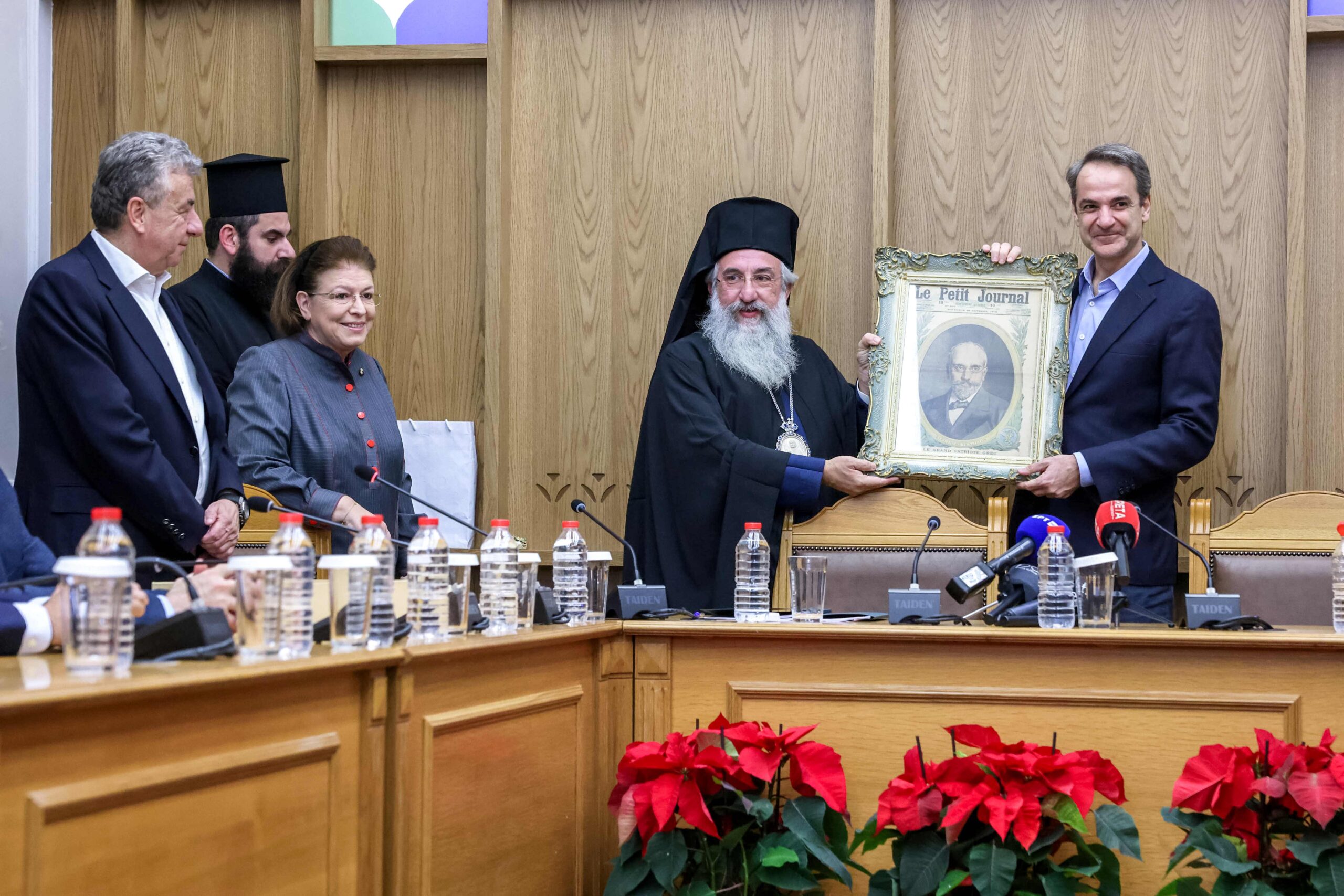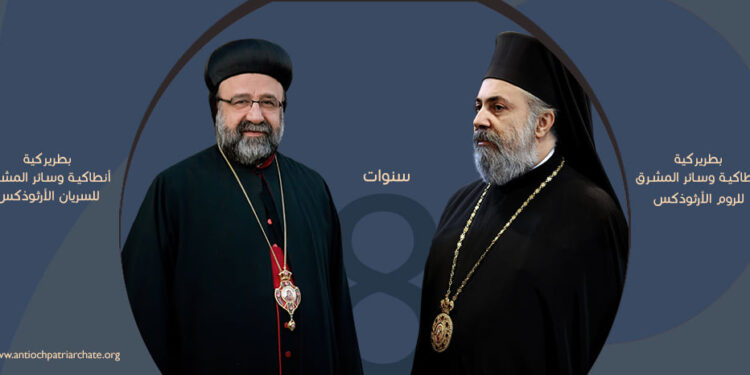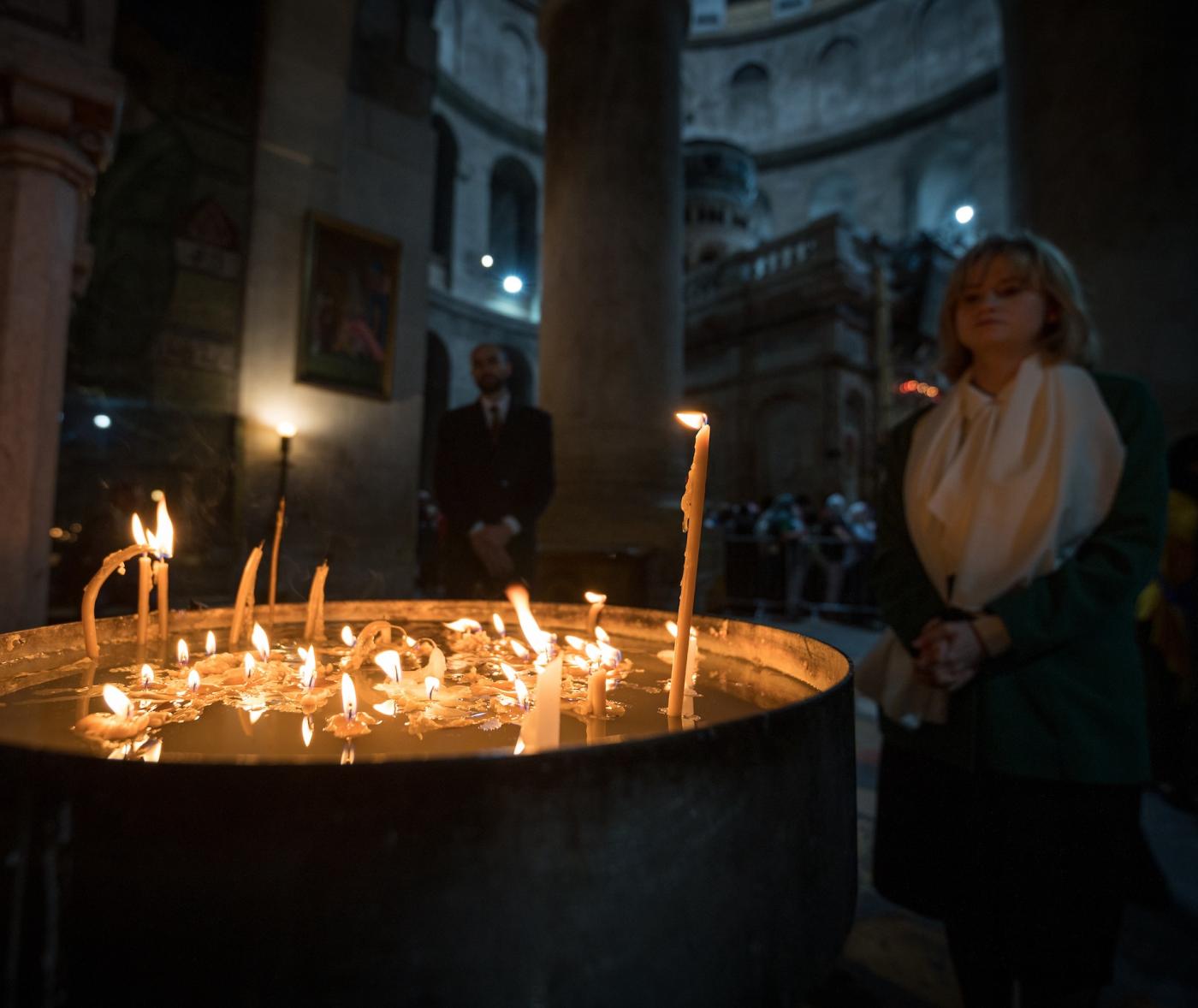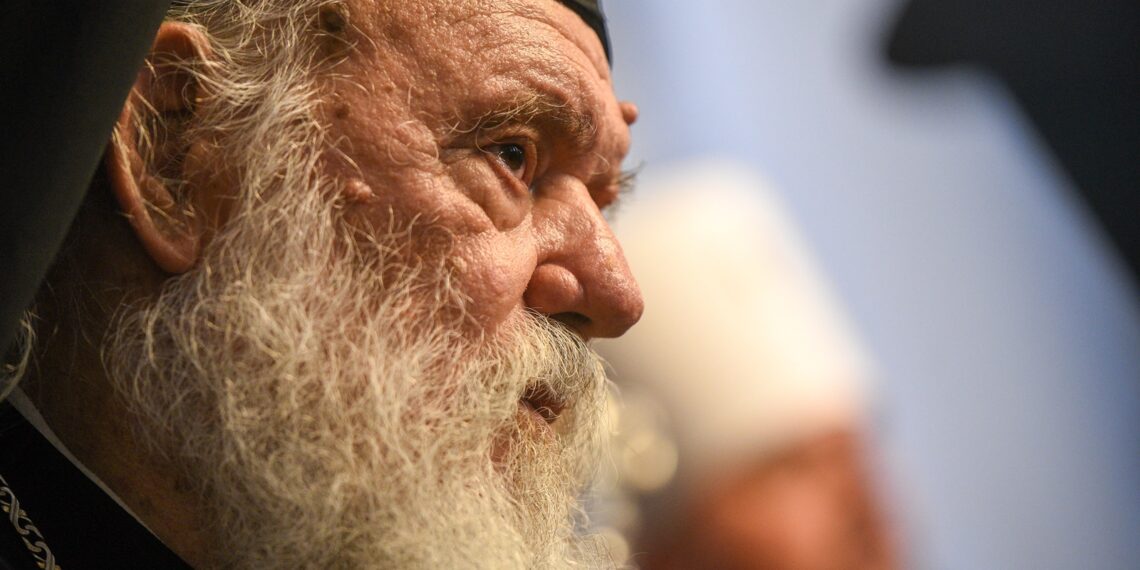Martyrs Thyrsos, Leukios, and Kallinikos (14 December)
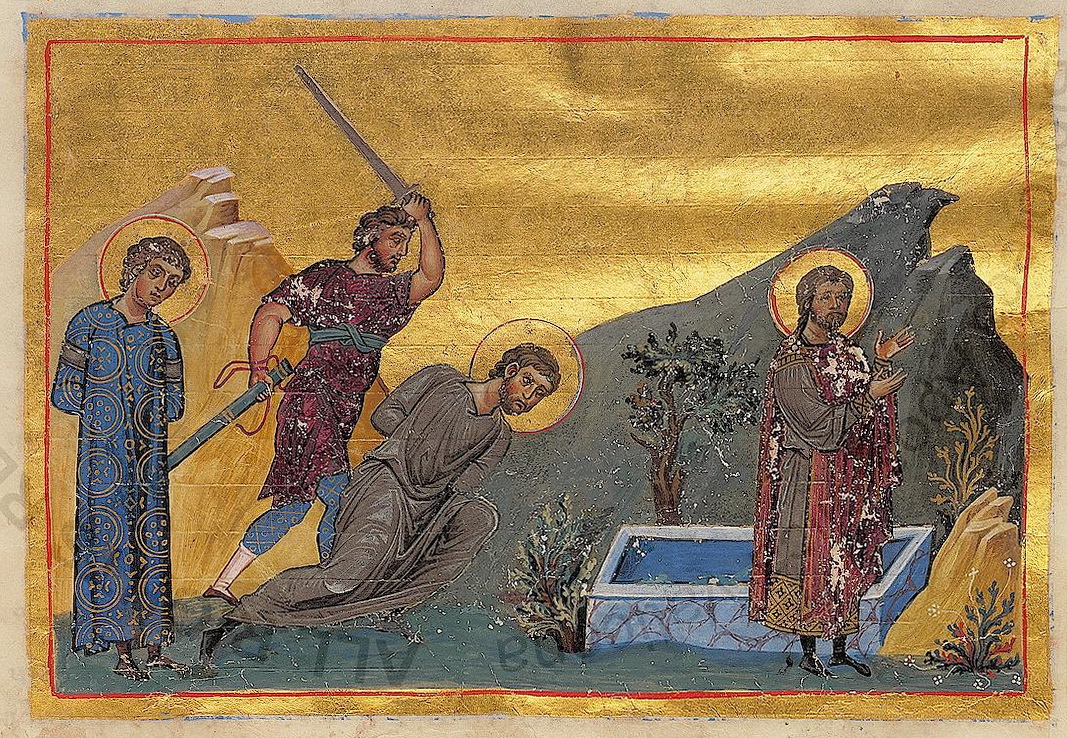

The Holy Martyrs Thyrsos, Leukios, and Kallinikos, suffered for Christ under Emperor Decius (249-251) at Caesarea in Bithynίa. When Saint Leukios reproached the prefect Cumbricius for his unjust persecution of Christians, he was tortured and then executed.
Saint Thyrsos, who was still a catechumen, was nonetheless eager for martyrdom. He was sentenced to cruel tortures after refusing to offer sacrifice to the idols. Citing the words of the Prophet Jeremiah (2:27), he ridiculed those who worshiped idols made of wood and stone.
The Saint’s arms and legs were pulled out of their sockets, his eyes were plucked out, and his teeth were smashed with a hammer. He was taken to a heathen temple, where, by his prayers, he toppled a statue of Apollo. Cumbricius was outraged by this, and he ordered even greater torments be devised for the athlete of Christ. Saint Thyrsos endured them all, then died after making the Sign of the Cross. The pagan priest Kallinikos, after witnessing the bravery of Saint Thyrsos and the miracle he performed, believed in Christ and boldly confessed the true Faith, for which he was beheaded.
Of these, the Martyrs who were from Asia Minor contested for piety’s sake during the reign of Decius, in 250. Saint Leucius, seeing the slaughter of the Christians, reproached the Governor Cumbricius, for which he was hung up, harrowed mercilessly on his sides, then beheaded. For boldly professing himself a Christian and rebuking the Governor for worshipping stocks and stones as gods, Saint Thyrsus, after many horrible tortures, was sentenced to be sawn asunder, but the saw would not cut, and became so heavy in the executioners’ hands that they could not move it; Saint Thyrsus then gave up his spirit, at Apollonia in the Hellespont. Saint Callinicus a priest of the idols, was converted through the martyrdom and miracles of Saint Thyrsus, and was beheaded.
During the reign of Diocletian (284-305), the Governor of Antinoe in the Thebaid of Upper Egypt was Arian, a fierce persecutor who had sent many Christians to a violent death, among them Saints Timothy and Maura (see May 3) and Saint Sabine (Mar. 16). When he had imprisoned Christians for their confession of faith, one of them, named Apollonius, a reader of the Church, lost his courage at the sight of the instruments of torture, and thought how he might escape torments without denying Christ. He gave money to Philemon a flute-player and a pagan, that he might put on Apollonius’ clothes and offer sacrifice before Arian, so that all would think Apollonius to have done the Governor’s will, and he might be released.
Philemon agreed to this, but when the time came to offer sacrifice, enlightened by divine grace, he declared himself a Christian instead. He and Apollonius, who also confessed Christ when the fraud was exposed, were both beheaded. Before beheading them, Arian had commanded that they be shot with arrows, but while they remained unharmed, Arian himself was wounded by one of the arrows; Saint Philemon foretold that after his martyrdom, Arian would be healed at his tomb. When this came to pass, Arian, the persecutor who had slain so many servants of Christ, himself believed in Christ and was baptized with four of his bodyguards. Diocletian heard of this and had Arian and his body-guards brought to him. For their confession of Christ, they were cast into the sea, and received the crown of life everlasting.
Saints Thyrsus and Leucius were honorable citizens of Caesarea of Bithynia, the former being baptized and the latter being a Christian catechumen. Callinicus, however, was a pagan priest. When Emperor Decius’s heir, Cumbricius, began to mercilessly torture and murder Christians, the fearless Leucius appeared before him and, reproaching him, said: “Why have you waged war against your own soul, O Cumbricius?” The enraged judge ordered that he be flogged, tortured and finally beheaded. The tortured Leucius went to his beheading as joyfully as if he were going to a wedding. Witnessing the death of the courageous Leucius, blessed Thyrsus, inflamed with divine zeal like that of Leucius, also appeared before the judge and reproached him for his evil crimes and for his unbelief in the One True God.
He also was flogged and cast into prison. The invisible hand of God healed him of his wounds, opened the prison door and led him out. Thyrsus immediately went to Phileas, the Bishop of Caesarea, to be baptized by him. After his baptism, he was again seized and tortured, but he endured the tortures, bearing them as though in a dream and not in reality. By the power of his prayer, many idols fell down. The pagan priest Callinicus, upon seeing this, converted to the Christian Faith, and both he and Thyrsus were condemned to death. Callinicus was beheaded, and they placed Thyrsus in a wooden coffin to be sawn in half.
However, the power of God would not permit this, and the saw was unable to cut into the wood. Then St. Thyrsus arose from the coffin and prayed to God, rendering Him thanks for the tortures, and he peacefully gave up his soul to his Lord. At the end of the fourth century, the Emperor Flavian built a church to St. Thyrsus near Constantinople and placed his holy relics in it. The saint appeared in a vision to Empress Pulcheria and counseled her to bury the relics of the Forty Martyrs alongside his.
Apolytikion of Martyrs Thyrsus & companions
Fourth Tone
Thy Martyrs, O Lord, in their courageous contest for Thee received as the prize the crowns of incorruption and life from Thee, our immortal God. For since they possessed Thy strength, they cast down the tyrants and wholly destroyed the demons’ strengthless presumption. O Christ God, by their prayers, save our souls, since Thou art merciful.
Kontakion of Martyrs Thyrsus & companions
Fourth Tone
As we gather on this day, let us all honour with divine and sacred songs the luminaries of the Church as we extol them with hymns of praise as trophy-bearers and Martyrs of Christ our God.
Source: oca.org / goarch.org / westserbdio.org

